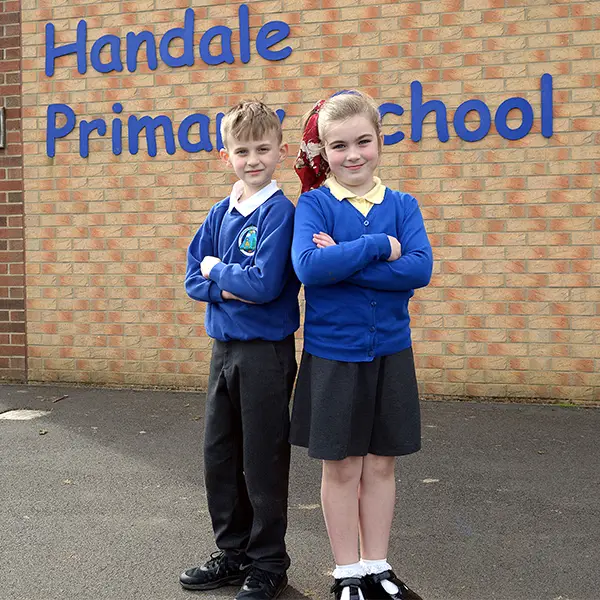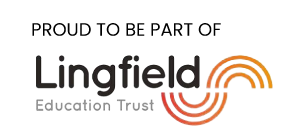At Handale, we aim to have a secure knowledge of pupils’ strengths, celebrating their achievements and identifying and addressing learning ‘gaps’. We ensure that professional judgements are made to ensure pupils meet their potential.
Assessment for learning involves using assessment in the classroom to raise pupils’ achievement. It is based on the idea that pupils will improve most if they understand the aim of their learning, where they are in relation to this aim and how they can achieve the aim (or close the gap in their knowledge).
Assessment is closely linked to teachers’ curriculum planning, since it is only by continually assessing what children have learnt and understood, that we can know what “next steps” should be planned.
‘There is a consistency in teaching across the school. Teachers share their subject
knowledge deliberately and effectively. They use a range of strategies in lessons to help
pupils remember important knowledge. For example, new units of work in mathematics
begin with a check so staff are aware of any gaps or misconceptions in pupils’ learning.’ Ofsted, 2025
Please view our Assessment Policy below.
At Handale Primary School, effective assessment for learning is a continuous and dynamic process that happens every day in every classroom. It begins with sharing clear learning goals with pupils, helping them understand what they are aiming for and the high standards and expectations we hold. Pupils are supported in recognising these standards through verbal and written feedback that identifies specific ways to improve. We believe that every child can make progress when compared with their previous achievements, and our approach reflects this belief.
Assessment is a collaborative process, involving both teachers and pupils in reviewing and reflecting on performance and progress. Pupils are taught self-assessment and peer-assessment techniques, enabling them to identify areas for development and take ownership of their learning. Teachers use targeted questioning to deepen understanding and uncover misconceptions, ensuring that learning is meaningful and purposeful.
This approach ensures that assessment is not a one-off event, but a core part of teaching and learning, driving improvement and fostering a culture of reflection, resilience, and growth.
Regular Retrieval
At Handale Primary School, we place a strong emphasis on retrieval practice as a key strategy to strengthen memory and deepen understanding. Every morning begins with daily knowledge checks, giving pupils the opportunity to revisit and reinforce prior learning. At the start of each lesson, retrieval activities help children activate existing knowledge and make meaningful connections with new content. We also use planned interventions to support pupils who need to catch up, ensuring no child is left behind. Each term, we hold Knowledge Days to celebrate and consolidate learning across subjects. Additionally, our Read, Recall and Retrieve (RRR) tasks are embedded at the start of curriculum subjects, encouraging pupils to reflect, remember, and apply what they’ve learned. These practices help build confident learners with strong foundations for future success
Feedback
At Handale Primary School, feedback is a vital part of our teaching and learning approach. We believe that effective feedback leads directly to new learning and plays a central role in helping children progress.
- Assessment and feedback are continuous, two-way processes between adults and children, forming an essential part of the ethos in every classroom.
- Planning and assessment work closely together, ensuring that feedback is timely, relevant, and impactful.
- Learning conversations take place throughout lessons, where teachers and pupils discuss the planned learning. These conversations allow teachers to:
- Assess understanding in real time,
- Provide instant, constructive feedback,
- Scaffold and develop the next steps with the child,
- Enable immediate improvements in learning.
- Pupil self-evaluation is a key part of this dialogue, encouraging children to reflect on their progress and take ownership of their learning journey.
We believe that the more children understand the purpose of their learning and the steps needed to achieve their goals, the more responsibility they will take for their progress. This leads to increased motivation, independence, and ultimately, success.
Self-Assessment
At Handale Primary School, we embed self-assessment into our planning because we believe every child should strive to be the very best they can be. We want our pupils to develop the confidence to recognise and take pride in their own achievements.
- Self-assessment is a powerful tool that:
- Actively involves pupils in their learning, helping them take ownership of their progress.
- Encourages children to critically reflect on their learning process and performance, fostering deeper understanding.
- Reduces peer pressure, allowing pupils to evaluate themselves in a safe and supportive environment.
- Provides a window into pupils’ thinking, helping teachers understand how children approach tasks and challenges.
- Makes planned learning and assessment criteria visible, so pupils know what success looks like.
- Enables feedback that supports current learning and informs the next steps in teaching and learning.
- Helps pupils understand how to improve, giving them clear, constructive guidance to move forward.
- Through self-assessment, our children grow as independent learners who are proud of their progress and motivated to achieve their full potential.
Assessment of Work
Assessment at Handale Primary School is a rich and varied process designed to celebrate achievement and support progress. One of the ways we do this is through Gold Pieces of Work – a celebration of knowledge where children present their learning in a format of their choosing, showcasing creativity, understanding and pride in their work. In Science, we use Blast from the Past to explore the lives and contributions of significant scientists, helping pupils gain a deeper understanding of the subject and its real-world impact. We also use standardised assessments to benchmark progress and ensure consistency across the curriculum. Children’s attainment in both skills and knowledge is carefully tracked and we plan targeted catch-up interventions to ensure that no child falls behind. This proactive approach allows us to support every learner effectively and maintain high standards across the school.



